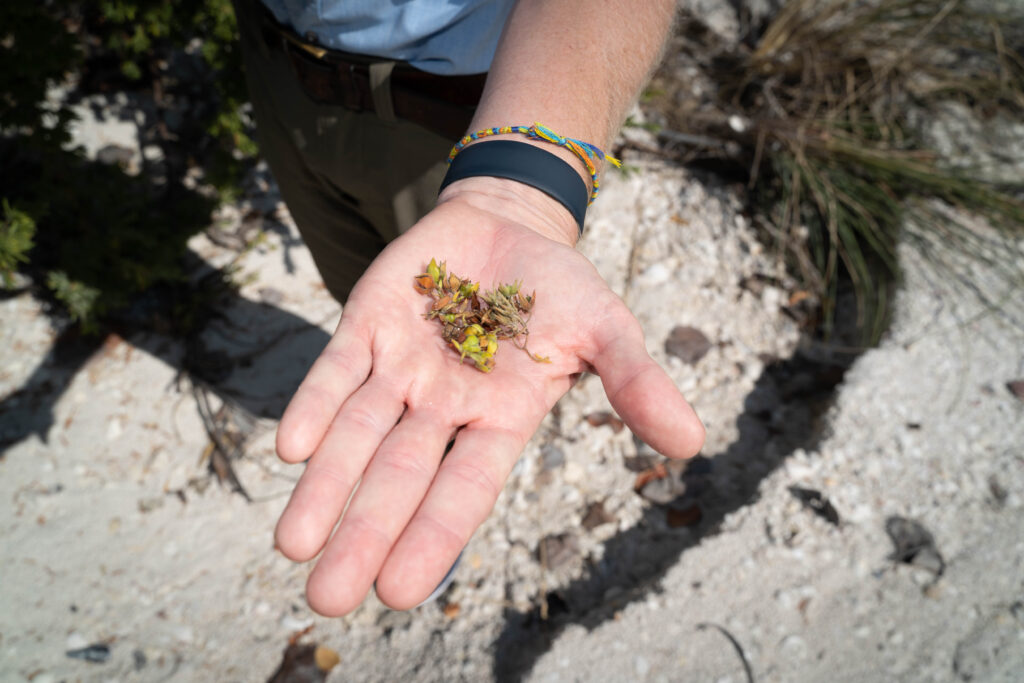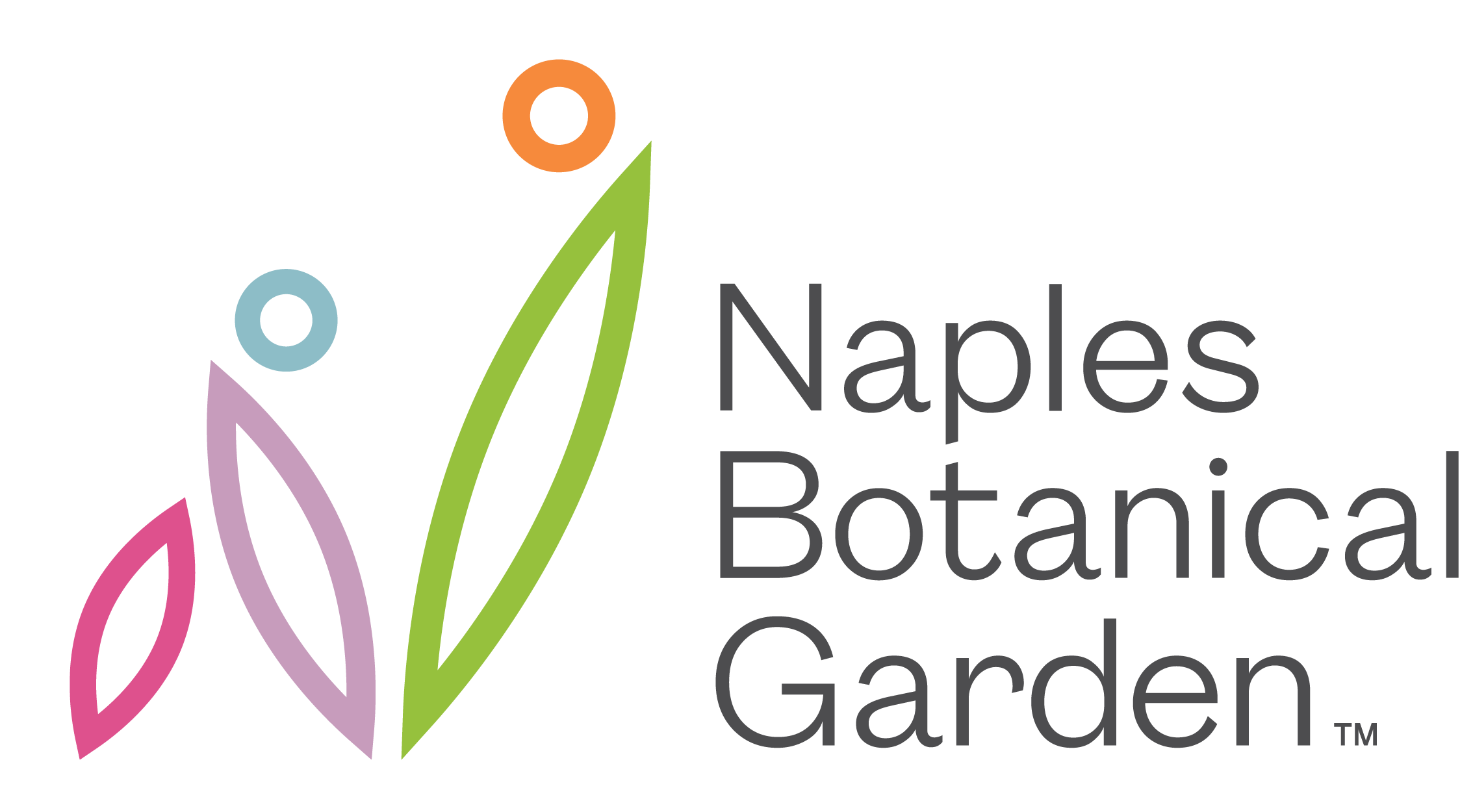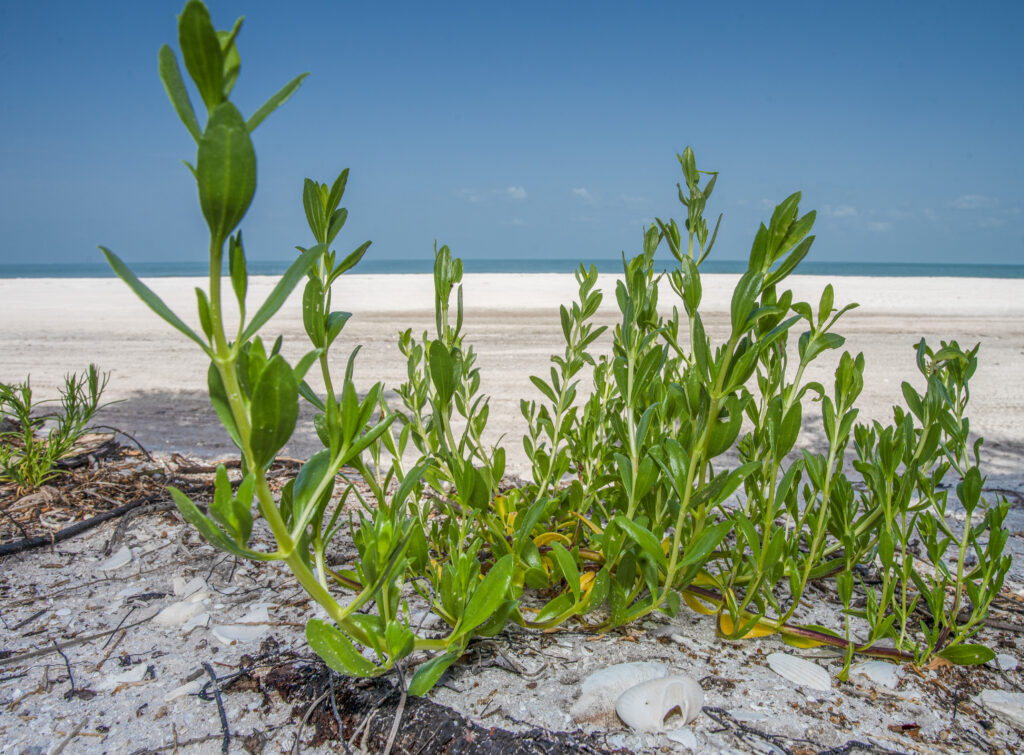The Center is a research, education, and applied science program within Naples Botanical Garden dedicated to harnessing the power of nature to solve environmental and societal challenges. Nature-based solutions are interventions using nature’s template to improve ecosystem health, support biodiversity, improve economic conditions, and enhance human well-being.
Our principal areas of practice are:
Beach Dune Restoration: Beach dunes are the first line of defense against water and wind damage. Armed with extensive research on natural coastal ecosystems, the Garden has developed a dune restoration strategy that uses an array of native plants that capture and accumulate sand, while also providing wildlife habitat.
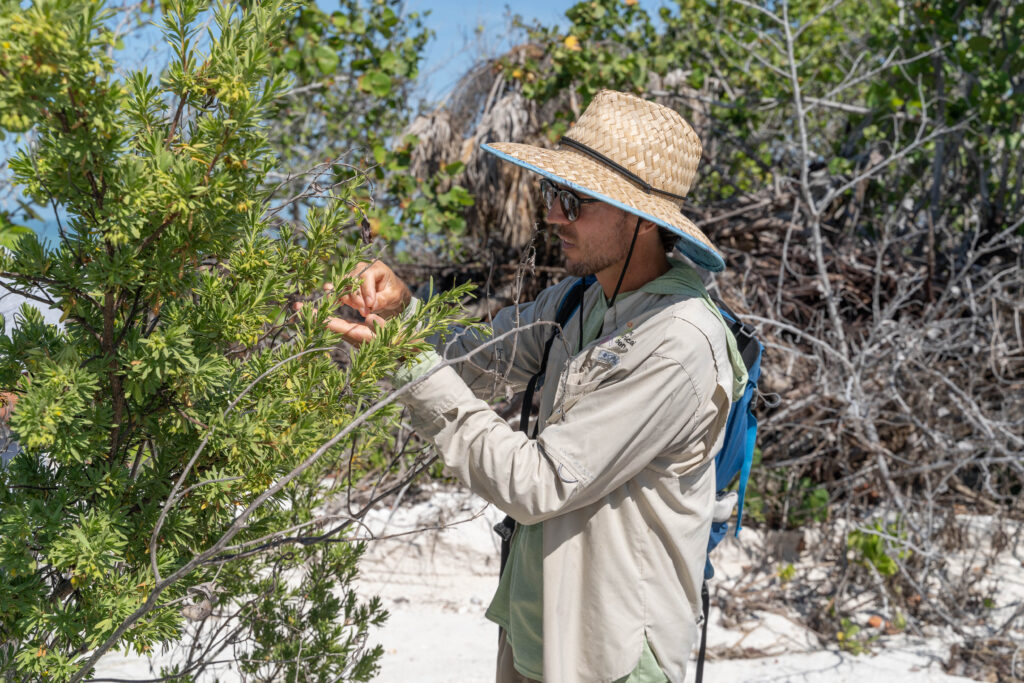
Stormwater Management: Southwest Florida suffers periodic algal breakouts, a problem linked to excess nitrogen and phosphorus carried by stormwater into ponds, canals, rivers, and the Gulf. The Garden’s stormwater management system provides a model for using plants to purify runoff. The system includes bioswales, such as the Hamilton Avenue Bioswale, lake banks with native plant buffers, a rain garden, and a miniature Everglades ecosystem at the heart of the property.
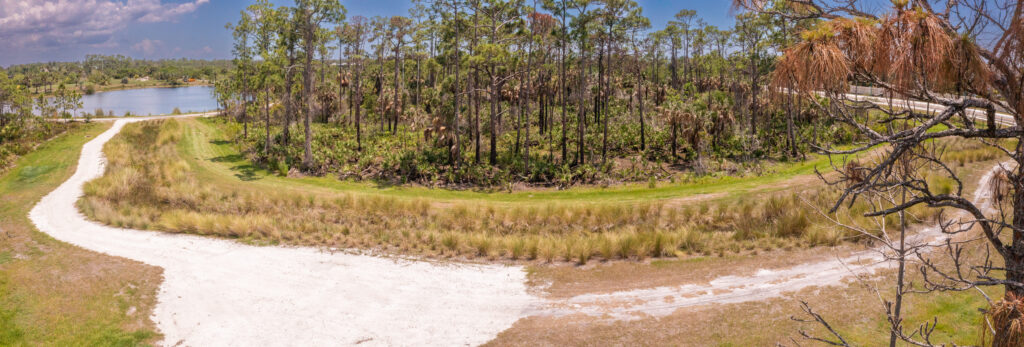
The Collier Enterprises South Wetland Preserve: Invasive exotic melaleuca trees and cattails once dominated this part of the Garden. When cleared, native plants reclaimed the land, purifying runoff water and creating habitat for wildlife, notably wading birds. Following recent hurricanes, our researchers have calculated the millions of gallons of floodwater held in the Preserve and are investigating ways to make communities more resilient by maintaining open spaces within developed areas.
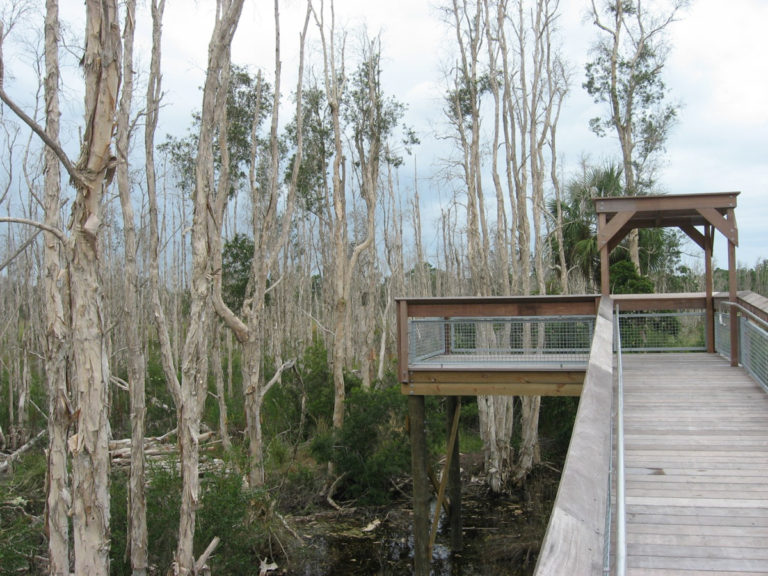
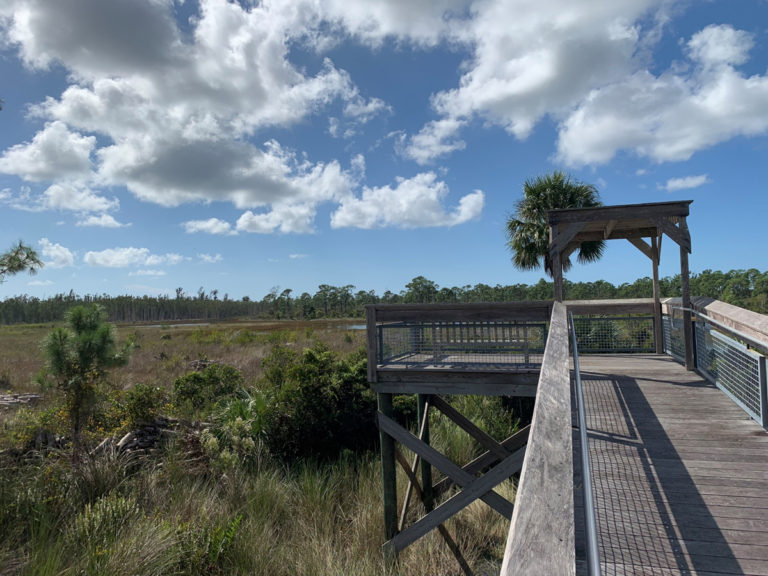
Restoration Seed Bank: The United States suffers from a vast shortage of native plant seed available for restoration following hurricanes, floods, fires, and other natural disasters. Naples Botanical Garden is amassing and storing locally collected, genetically diverse seeds for future ecosystem restoration projects. As of late 2024, the Garden had nearly half a million native plant seeds conserved.
